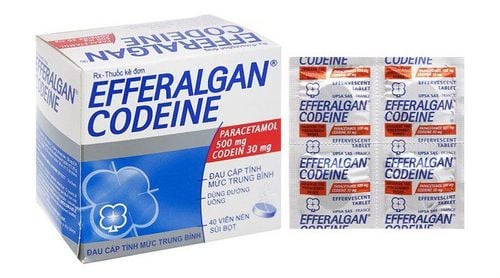This is an automatically translated article.
Buffered Salt is a combination product of Potassium Chloride and Sodium Chloride. This product is used for the purpose of replenishing electrolytes and reducing fatigue or dehydration caused by overheating.
1. What does Buffered Salt do?
Buffered Salt has ingredients including Sodium chloride and Potassium chloride. Potassium (also known as Potassium) is a mineral found in many foods and plays an important role in a number of bodily functions, especially maintaining a normal heart rhythm. Sodium chloride (NaCl) is the chemical structure of salt, in which Sodium (or sodium) is an electrolyte that plays a role in regulating the amount of water in the body. In addition, sodium is also a component of nerve impulse conduction and muscle contraction.
Buffered Salt is a mineral supplement that combines Sodium Chloride and Potassium Chloride so it is useful in reducing fatigue, muscle cramps or heat that can occur when users sweat more than usual. . Buffered Salt medicinal products are often used for people who are often outdoors or work in places with too high temperature (which can cause the body to overheat).
2. Matters needing attention before using Buffered salt medicine
Patients should not use the medicinal product Buffered Salt without a doctor's advice if they have the following:
History of kidney disease; The patient should have a salt-restricted diet. Patients should consult their doctor, pharmacist or healthcare professional to see if it is safe for themselves to use Buffered Salt if they have a history of the following:
Hypertension; Having cardiovascular disease; Ulcers or other problems in the stomach or esophagus. Researchers have not determined whether Buffered Salt will harm an unborn baby, so pregnant women should not use Buffered Salt without the consent of their doctor. Note that Buffered Salt dosage requirements may change during pregnancy.
It is not known whether potassium chloride and sodium chloride pass into breast milk when a nursing mother takes Buffered Salt. Therefore, it is not recommended to use Buffered Salt for nursing mothers without the consent of the doctor.
Children are a special object, do not let children use Buffered Salt without the advice of a doctor.
3. Instructions for using Buffered Salt
Patients need to use Buffered Salt exactly as directed by the manufacturer or as prescribed by a doctor. Never use in larger or smaller doses or for longer than recommended.
The usual dose of Buffered Salt is 1 tablet taken 5 to 10 times per day. Users need to take Buffered Salt with a full glass of water. At the same time, users may need to adjust the dose of Buffered Salt depending on the ambient temperature to which you are exposed.
Patients should contact their doctor if the body condition during treatment with Buffered Salt does not improve or even tends to get worse.
In terms of storage, patients need to store Buffered Salt at room temperature, avoid humid places and excessive heat.
4. Side effects of the drug Buffered Salt
Buffered Salt users should get emergency medical help if they have signs of an allergic reaction such as hives, difficulty breathing, swelling of the face, lips, tongue or throat. Buffered Salt can cause serious side effects during use, so contact your doctor immediately if you have the following abnormalities:
Symptoms of dehydration such as dry skin, feeling very thirsty or excessive hot, confused, unable to urinate; High blood potassium levels with symptoms of nausea, slow or irregular heartbeat, muscle weakness or loss of mobility. The side effects of Buffered Salt have not been completely determined, but Buffered Salt is thought to be POSSIBLY SAFE for most people when used as directed.
5. Buffered Salt Drug Interactions
Do not use Buffered Salt without the advice of a doctor if the patient is taking any of the following medicines:
Cardiovascular or blood pressure control drugs; Medicines for colds or allergies that contain antihistamines. The article does not cover all possible interactions of Buffered Salt. Other drugs that may interact with Buffered Salt may include prescription drugs, over-the-counter drugs, vitamin supplements, and herbal products. Therefore, patients need to list all the drugs they are using and inform their doctor before taking Buffered Salt to limit adverse drug interactions.













